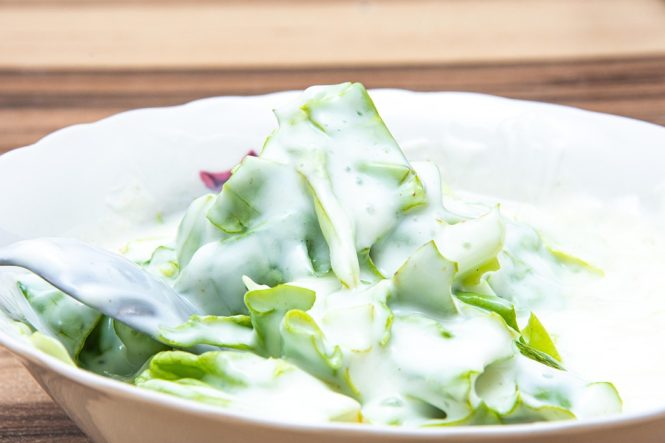
Eat to Beat PCOS: A Comprehensive Diet Guide for Women with Polycystic Ovary Syndrome
Polycystic Ovary Syndrome (PCOS) is a hormonal disorder that affects millions of women worldwide. It is characterized by irregular menstrual cycles, cysts on the ovaries, and a range of other symptoms, including weight gain, acne, and excessive hair growth. While there is no cure for PCOS, research has shown that a healthy diet can play a crucial role in managing the condition and reducing its symptoms. In this article, we will explore the importance of diet in managing PCOS and provide a comprehensive guide on how to eat to beat PCOS.
The Impact of Diet on PCOS
Women with PCOS are often insulin resistant, which means that their bodies produce insulin, but it is not used effectively. This can lead to high blood sugar levels, weight gain, and an increased risk of developing type 2 diabetes and other health problems. A healthy diet can help to improve insulin sensitivity, reduce inflammation, and promote weight loss, all of which can help to alleviate the symptoms of PCOS.
Key Principles of a PCOS Diet
While there is no single “PCOS diet,” there are some key principles that can help women with PCOS to manage their condition through diet. These include:
- Eating a balanced diet: Focus on whole, unprocessed foods, including fruits, vegetables, whole grains, lean proteins, and healthy fats.
- Choosing low-glycemic index foods: Foods with a low glycemic index (GI) are digested slowly, which can help to regulate blood sugar levels and improve insulin sensitivity.
- Increasing fiber intake: Fiber can help to slow down the digestion of carbohydrates and improve insulin sensitivity.
- Reducing sugar and refined carbohydrate intake: Sugary and refined foods can cause a spike in blood sugar levels and worsen insulin resistance.
- Incorporating anti-inflammatory foods: Foods rich in omega-3 fatty acids, antioxidants, and other anti-inflammatory compounds can help to reduce inflammation and improve symptoms.
Foods to Eat
Some of the best foods for women with PCOS include:
- Leafy greens: Spinach, kale, and other leafy greens are rich in antioxidants and fiber.
- Berries: Berries are low in sugar and high in fiber and antioxidants.
- Fatty fish: Fatty fish like salmon and sardines are rich in omega-3 fatty acids.
- Sweet potatoes: Sweet potatoes are rich in fiber and have a low GI.
- Legumes: Legumes like lentils and chickpeas are rich in fiber and protein.
- Nuts and seeds: Nuts and seeds like almonds and chia seeds are rich in healthy fats and fiber.
- Whole grains: Whole grains like brown rice and quinoa are rich in fiber and nutrients.
Foods to Avoid
Some of the worst foods for women with PCOS include:
- Sugary drinks: Sugary drinks like soda and juice can cause a spike in blood sugar levels and worsen insulin resistance.
- Refined grains: Refined grains like white bread and pasta can cause a spike in blood sugar levels and worsen insulin resistance.
- Processed meats: Processed meats like hot dogs and sausages are high in saturated fat and sodium.
- Fried foods: Fried foods like french fries and fried chicken are high in unhealthy fats and calories.
- High-sugar foods: High-sugar foods like cakes and cookies can cause a spike in blood sugar levels and worsen insulin resistance.
Sample Meal Plan
Here is a sample meal plan that incorporates some of the key principles of a PCOS diet:
- Breakfast: Oatmeal with berries and nuts
- Snack: Apple slices with almond butter
- Lunch: Grilled chicken salad with avocado and sweet potato
- Snack: Carrot sticks with hummus
- Dinner: Baked salmon with quinoa and steamed broccoli
Tips for Implementing a PCOS Diet
- Start slow: Gradually introduce new foods and habits into your diet to avoid feeling overwhelmed.
- Seek support: Consult with a registered dietitian or healthcare provider to develop a personalized meal plan.
- Keep track of your symptoms: Monitor your symptoms and adjust your diet accordingly.
- Stay hydrated: Drink plenty of water to help regulate blood sugar levels and improve insulin sensitivity.
- Be patient: It may take some time to notice improvements in your symptoms, so be patient and stay committed to your diet.
Conclusion
While there is no cure for PCOS, a healthy diet can play a crucial role in managing the condition and reducing its symptoms. By incorporating the key principles of a PCOS diet, including eating a balanced diet, choosing low-glycemic index foods, and reducing sugar and refined carbohydrate intake, women with PCOS can improve their insulin sensitivity, reduce inflammation, and promote weight loss. With the right diet and lifestyle changes, women with PCOS can take control of their health and improve their overall quality of life.